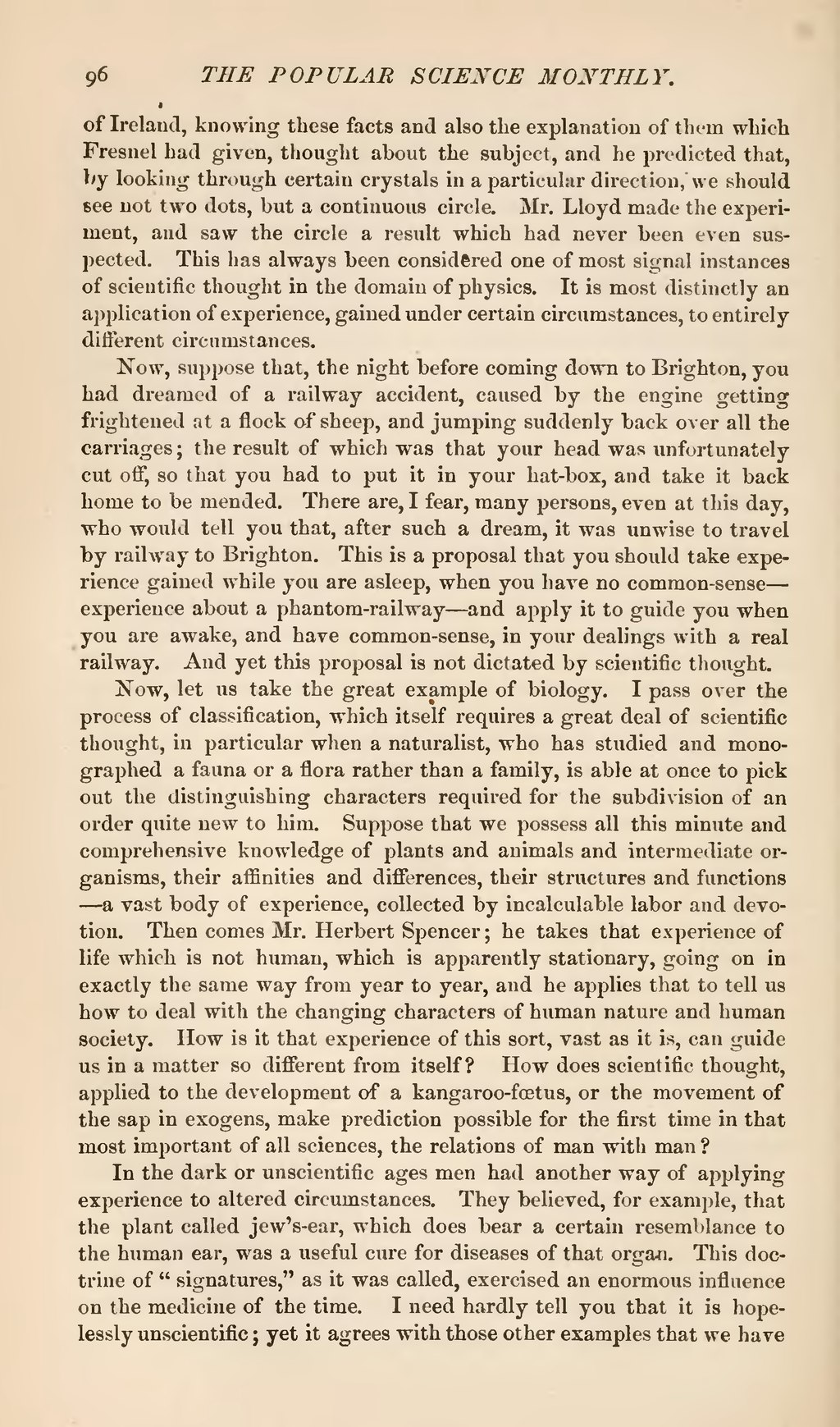of Ireland, knowing these facts and also the explanation of them which Fresnel had given, thought about the subject, and he predicted that, by looking through certain crystals in a particular direction, we should see not two dots, but a continuous circle. Mr. Lloyd made the experiment, and saw the circle a result which had never been even suspected. This has always been considered one of most signal instances of scientific thought in the domain of physics. It is most distinctly an application of experience, gained under certain circumstances, to entirely different circumstances.
Now, suppose that, the night before coming down to Brighton, you had dreamed of a railway accident, caused by the engine getting frightened at a flock of sheep, and jumping suddenly back over all the carriages; the result of which was that your head was unfortunately cut off, so that you had to put it in your hat-box, and take it back home to be mended. There are, I fear, many persons, even at this day, who would tell you that, after such a dream, it was unwise to travel by railway to Brighton. This is a proposal that you should take experience gained while you are asleep, when you have no common-sense—experience about a phantom-railway—and apply it to guide you when you are awake, and have common-sense, in your dealings with a real railway. And yet this proposal is not dictated by scientific thought.
Now, let us take the great example of biology. I pass over the process of classification, which itself requires a great deal of scientific thought, in particular when a naturalist, who has studied and monographed a fauna or a flora rather than a family, is able at once to pick out the distinguishing characters required for the subdivision of an order quite new to him. Suppose that we possess all this minute and comprehensive knowledge of plants and animals and intermediate organisms, their affinities and differences, their structures and functions—a vast body of experience, collected by incalculable labor and devotion. Then comes Mr. Herbert Spencer; he takes that experience of life which is not human, which is apparently stationary, going on in exactly the same way from year to year, and he applies that to tell us how to deal with the changing characters of human nature and human society. How is it that experience of this sort, vast as it is, can guide us in a matter so different from itself? How does scientific thought, applied to the development of a kangaroo-fœtus, or the movement of the sap in exogens, make prediction possible for the first time in that most important of all sciences, the relations of man with man?
In the dark or unscientific ages men had another way of applying experience to altered circumstances. They believed, for example, that the plant called jew's-ear, which does bear a certain resemblance to the human ear, was a useful cure for diseases of that organ. This doctrine of "signatures," as it was called, exercised an enormous influence on the medicine of the time. I need hardly tell you that it is hopelessly unscientific; yet it agrees with those other examples that we have
